Space
Sign up for our newsletter
We summarize the week's scientific breakthroughs every Thursday.
-
 Particle Physics
Particle PhysicsNeutrinos’ identity shift snares physics Nobel
Arthur McDonald and Takaaki Kajita shared the 2015 Nobel Prize in physics for the discovery that neutrinos oscillate between different types, which demonstrates that the particles have mass.
By Andrew Grant and Thomas Sumner -
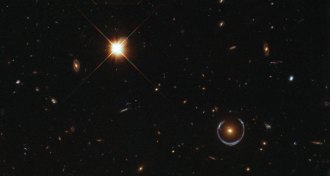 Astronomy
AstronomyUsing general relativity to magnify the cosmos
Astronomers have Einstein to thank for the tools that bring far-away galaxies and maybe even black hole collisions into view.
-
 Particle Physics
Particle PhysicsDiscovery of neutrino mass earns 2015 physics Nobel
The discovery that subatomic particles called neutrinos have mass has won Takaaki Kajita of the University of Tokyo and Arthur McDonald of Queen’s University in Kingston, Canada, the 2015 Nobel Prize in physics.
By Andrew Grant -
 Science & Society
Science & SocietyCentennial books illuminate Einstein’s greatest triumph
Scholars mark general relativity 100ths anniversary with books on history, biography, science.
-
 Astronomy
AstronomyEinstein’s genius changed science’s perception of gravity
Einstein struggled for years to solve the puzzle of general relativity. The pieces all fell into place in November 1915.
-
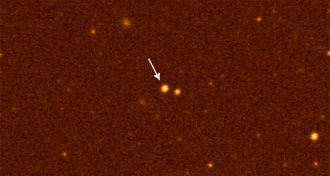 Astronomy
AstronomyFirst stars may lurk in our galactic neighborhood
Representatives from the first generation of stars might be hiding in our cosmic backyard, masked by interstellar pollution.
-
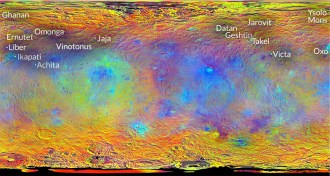 Planetary Science
Planetary ScienceCeres mountains and craters named for food
A host of agricultural spirits are immortalized on several craters and mountains on the dwarf planet Ceres.
-
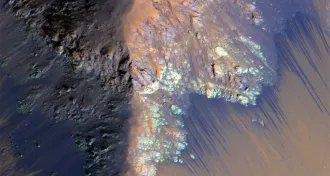 Planetary Science
Planetary ScienceSalt streaks sign of present-day water flows on Mars
Salt deposits on Mars hint at contemporary seasonal water flows on the Red Planet.
-
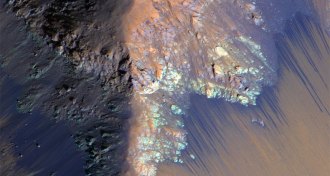 Planetary Science
Planetary ScienceSalt streaks point to present-day water flows on Mars
Salt deposits on Mars hint at contemporary seasonal water flows on the Red Planet.
-
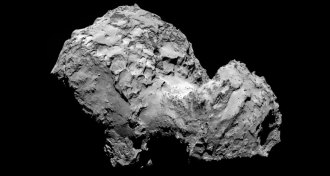 Planetary Science
Planetary Science67P reveals recipe for a comet
Rosetta’s comet 67P probably started out as two smaller comets.
-
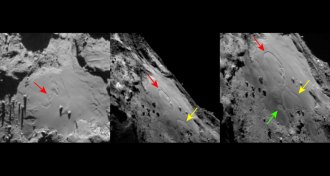 Planetary Science
Planetary ScienceMysterious circles appear, grow on comet
The Rosetta spacecraft caught five circular depressions quickly spreading across a region of comet 67P.
-
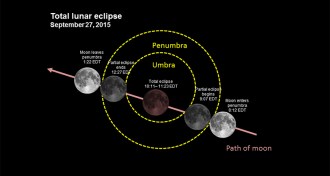 Astronomy
AstronomyThis weekend, lunar eclipse coincides with supermoon
On September 27, sky gazers will be treated to a rare type of total lunar eclipse.